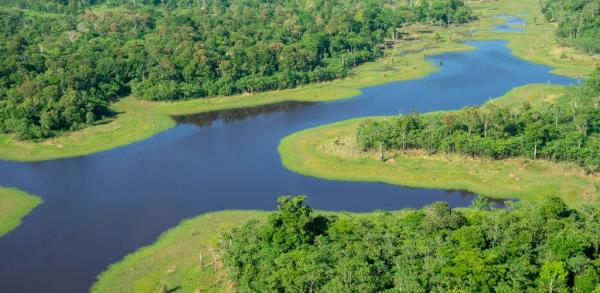The Battle for Truth on Water Climate and the Environment:
New publication explores the role of information manipulation campaigns in water and climate diplomacy
5 Mar 2024 by The Water Diplomat

The Stockholm Hub on Environment, Climate and Security has published an insightful policy note on the impact of information influencing campaigns on the decision-making environment for climate change and water security. Looking back at COP 27, the researchers highlight the evidence of disinformation campaigns launched by fossil fuel companies and lobby groups that were active during the climate discussions. There are examples of disinformation (intentionally deceitful information), misinformation (unknowingly misleading information) and information influencing (sharing faulty information in different forms) which serve to erode trust in science, national governments, and international organisations. It is noteworthy that misinformation and disinformation also feature relatively prominently in The World Economic Forum’s Global Risks Report 2023.
In the field of water diplomacy, the authors argue, water negotiation processes in geopolitically complex environments, such as the Eastern Nile, the Euphrates and the Tigris, and the Jordan River Basin, have been affected by the spread of disinformation. The policy brief focuses on information manipulation, mainly disinformation, spread through social and online media, using two cases which were selected to cover different aspects of climate and water information manipulation. The first case to be covered is Ukraine – a case of manipulated information on water availability during a war – and the Eastern Nile region – a case of information manipulation in the context of sensitive transboundary negotiations on shared water resources. In both cases the authors focus on disinformation shared on social media platforms.
In the case of Ukraine, the war that commenced in 2014 has resulted in the targeting of civilian infrastructure, including water supply infrastructure. The destruction of the Kakhovka dam in June 2023 in particular has had far reaching human and environmental consequences and featured both sides in the conflict blaming the other for the destruction. Additionally disinformation spread by Russian media and state-affiliated actors targeted residents in Odesa, Mykolaiv and Kherson with narratives -often spread anonymously through social media - for example claiming that supplies of drinking water were finished, that drinking water had been contaminated, or that humanitarian aid, including water, would not be distributed.
In the case of the Eastern Nile region, the construction of the Grand Ethiopian Renaissance Dam (GERD) in the Blue Nile has been the source of tensions between Ethiopian on the one hand which has asserted its right to use its share of the Nile waters through construction and operation, and Egypt and Sudan on the other hand, downstream countries which are vulnerable to any variations in water supply as a result of interventions in the Nile. A study conducted between 2019 and 2022 established that diplomats, journalists, citizens and foreign audiences all used misinformation and disinformation narratives on the GERD on social media to push their viewpoints.
